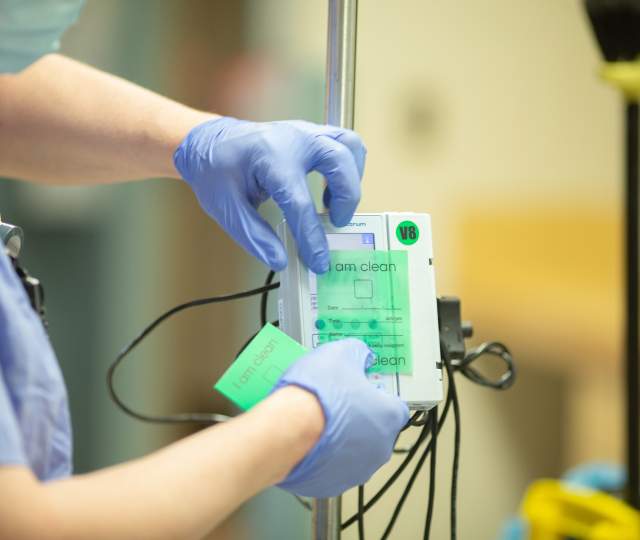Preventing hospital infections
Our goal is to protect all patients, residents, staff, volunteers and visitors from getting an infection. We ask our patients, residents and visitors to help us prevent the spread of infection by not visiting when feeling ill, cleaning hands frequently and following directions from our staff when wearing personal protective equipment is required.














